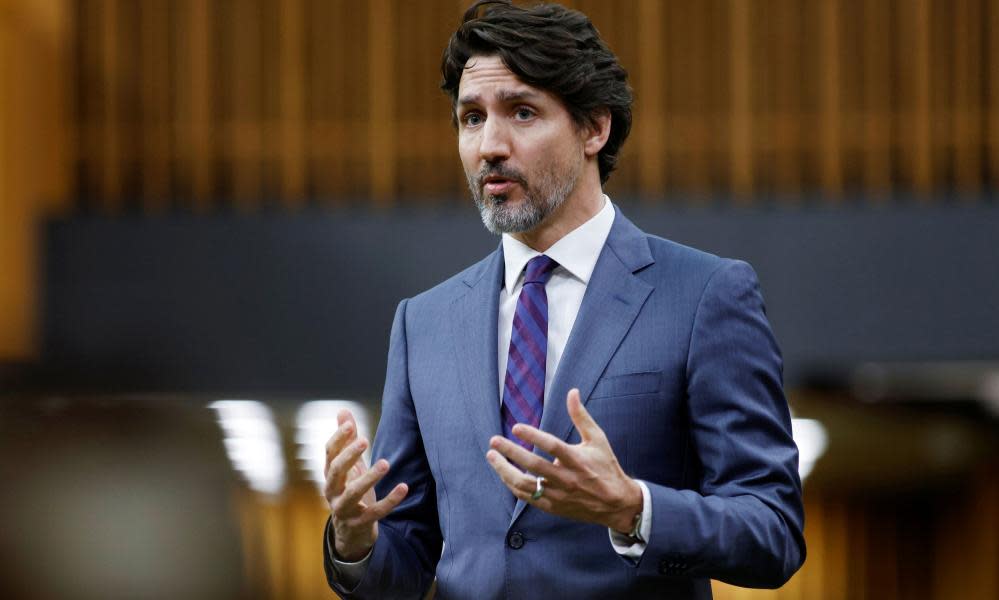Chinese diplomat accuses Trudeau of making Canada 'running dog of US'

- Oops!Something went wrong.Please try again later.
- Oops!Something went wrong.Please try again later.
A Chinese diplomat has dismissed Canada’s prime minister Justin Trudeau as a “boy” in a social media attack marking a new low in the fractured relationship between the two countries.
China and Canada have clashed repeatedly in recent months, and last week the two countries imposed sanctions on each other in a growing row over Beijing’s treatment of its Uighur minority.
But on Sunday, Trudeau was singled out for insult by China’s consul general to Rio de Janeiro, Li Yang in a tweet blaming him for the diplomatic crisis.
“Boy, your greatest achievement is to have ruined the friendly relations between China and Canada, and have turned Canada into a running dog of the US,” he tweeted.
The term “running dog” , a relic of Maoist China, is often used to describe nations that are subservient to countries like the United States.
Li’s twitter feed is often combative, taking aim at both gun violence, the legacy of slavery in the United States and treatment of asylum seekers, but Trudeau was the only leader the diplomat chose to single out for ridicule.
Because Chinese diplomacy is typically tightly controlled, Li’s message marks a rare and “disturbing” break from public statements by government officials, said David Mulroney, Canada’s former ambassador to China.
“[Li’s tweet] is a tremendous failure in Chinese digital diplomacy and soft power,” Mulroney said. “It’s as if someone has decided that it’s OK to let people off the leash – or they’re unable to keep them on the leash. The first troubling, the second is worrying.”
The outburst came as Canada, the United States, United Kingdom and European Union escalated their criticism of the treatment of Uighur Muslims in the Xinjiang region. Last week, the group of nations imposed sanctions on Chinese officials over human rights abuses.
In response, China slapped retaliatory sanctions on Canadian opposition lawmaker Michael Chong, a staunch critic of human rights abuses in Xinjiang. Chong later tweeted that he intended to “wear [the sanctions] as a badge of honour”.
Canada’s foreign ministry also condemned the sanctions, calling them an “attack” on free expression.
Underpinning the escalating tensions is a more than two-year effort for the release of Canadian citizens Michael Kovrig and Michael Spavor, who Canadian officials say are the victims of Chinese “hostage diplomacy”.
Meanwhile, China has demanded the release of Huawei executive Meng Wanzhou, who was arrested in Vancouver on a US arrest warrant in 2018.
Related: Path to freedom narrows for detained Canadian duo caught in US-China feud
Both Kovrig and Spavor recently faced trials for espionage in Chinese courts. No verdict was given and the closed-door trials were widely criticized by diplomats.
Meng is fiercely contesting her extradition to the United States, which appears poised to drag on into the summer.
Experts say China has grown increasingly frustrated over her detention and is willing to take strong actions to secure her release.
In addition to attacking Trudeau, Li used Twitter to attack the independence of Canada’s judiciary and called Ottawa’s decision to honour an extradition request and arrest the telecoms executive a “dirty thing”, adding that Canada – not China – was a “hostage taker”.
• The headline of this article was amended on 30 March 2021 to accurately reflect the diplomat’s words.

